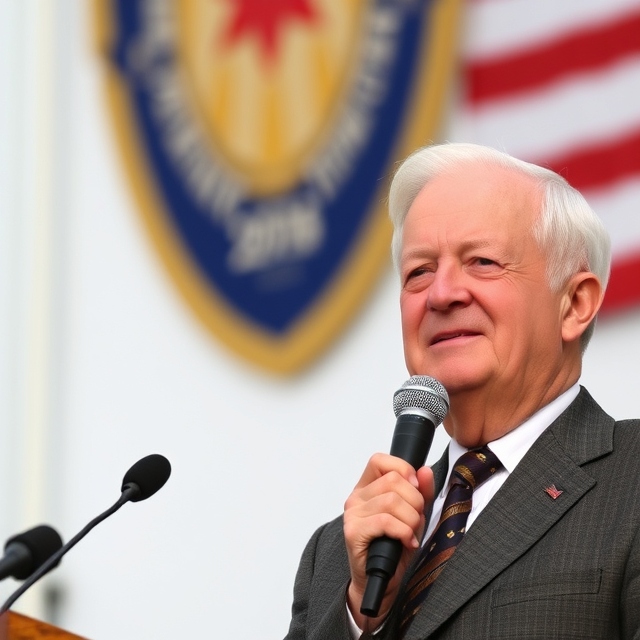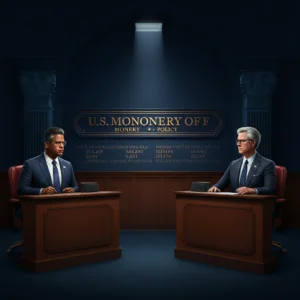Jimmy Carter’s story is one of resilience, service, and commitment to improving the world around him.
From his humble beginnings in rural Georgia to becoming the 39th President of the United States, Carter’s life has been shaped by deep-rooted values and a strong sense of duty to his country and humanity.
Early Life and Humble Beginnings
Born in Plains, Georgia, on October 1, 1924, Jimmy Carter grew up in a small farming community during the Great Depression. Raised by his parents, Earl and Lillian Carter, in a close-knit, Christian household, he learned early on the importance of hard work, self-reliance, and helping others. Carter’s father ran a successful peanut farm, and his mother was a compassionate nurse who cared for the community, instilling in him the importance of service and empathy.
As a child, Carter attended local schools and was an avid reader, often seeking knowledge beyond his environment. Despite his modest background, his family’s encouragement and support helped him excel academically and develop a strong moral compass. His upbringing, shaped by both the struggles and values of rural life, played a pivotal role in shaping his future ambitions and guiding his path toward public service.
How Jimmy Carter’s Childhood Shaped His Future
Carter’s early years in Georgia molded his character, giving him a deep understanding of the challenges faced by everyday people. Growing up in a segregated South, Carter witnessed racial inequalities and economic hardships that would later influence his strong stance on civil rights and social justice during his presidency.
His experience in the military, where he trained as a naval officer, taught him discipline and leadership, laying the foundation for his later political career. His time as a peanut farmer also gave him valuable insights into the working class, allowing him to connect with ordinary Americans. These formative years created a sense of empathy and responsibility that would guide his presidency, as he focused on human rights, peace, and public welfare, both at home and abroad.
The Political Rise: From Governor to President
Jimmy Carter’s path to becoming President was not quick, but steady, built on his dedication to public service, honesty, and his desire to make a positive difference. He worked hard in his home state of Georgia before reaching the highest office in the land.
Carter’s Early Political Career and Vision
Carter began his political journey in the 1960s, starting as a member of the Georgia state senate. During this time, he stood up for civil rights, better education, and equality. Even as a young politician, he wasn’t afraid to challenge the old political systems and pushed for reforms that would help improve life for all Georgians, especially those who had been ignored in the past.
In 1970, Carter took the next step in his career and became the governor of Georgia. As governor, he focused on improving the state’s education system, increasing job opportunities, and fighting for the poor and disadvantaged. Carter also worked hard to protect the environment and make energy use more efficient, topics that would become central to his time as President. His time as governor showed people that he was a leader who would fight for change, and his reputation for being honest, ethical, and hardworking helped him gain respect and support.
Key Moments Leading to His Presidential Bid
By the mid-1970s, the country was struggling. The Watergate scandal had destroyed many people’s trust in the government, and Americans were looking for new leadership. The country was facing difficult economic problems, and the effects of the Vietnam War were still being felt. People were ready for a new kind of leader—someone who was not part of the established political system, someone who could bring change and restore trust.
In 1976, Carter decided to run for President. He was determined to offer something different. His campaign was based on promises of honesty, transparency, and a government that worked for the people, not for special interests. He also emphasized the importance of energy independence and civil rights, issues that mattered to many Americans. His outsider status made him stand out, and his message resonated with voters tired of the old political ways.
Becoming the 39th President of the United States
Carter’s campaign for President in 1976 focused on the idea of renewal and change. He ran against Gerald Ford, the incumbent President who had taken office after Richard Nixon’s resignation. Ford had been President during a time of political unrest, and Carter promised to bring integrity, honesty, and transparency back to the government. His simple yet powerful message of change, hope, and unity resonated deeply with Americans.
In the 1976 election, Carter won a close victory over Ford, with 297 electoral votes to Ford’s 240. His win showed that the American people were ready for new leadership. On January 20, 1977, Carter was sworn in as the 39th President of the United States. His presidency was dedicated to addressing the nation’s biggest challenges—fighting for human rights, promoting peace, and trying to heal the divisions in American society. Carter’s rise to the presidency marked a shift in the nation’s politics, reflecting the American people’s desire for a leader who would bring honesty, integrity, and hope for the future.
The Political Battlefield: Triumphs and Struggles in Office
Jimmy Carter’s presidency was filled with both successes and challenges. While he achieved significant milestones, he also faced major struggles that shaped the public’s view of his leadership. From groundbreaking peace agreements to severe economic challenges, Carter’s time in office was a defining period in American history.
Major Achievements: Camp David Accords, Energy Reforms
One of Carter’s greatest achievements was the Camp David Accords in 1978. This historic agreement brought together Egyptian President Anwar Sadat and Israeli Prime Minister Menachem Begin for peace talks, resulting in a peace treaty between the two countries. Carter’s role as a mediator in this process earned him international praise and, in 1979, the Nobel Peace Prize. The Camp David Accords are seen as one of the major achievements of Carter’s presidency, as they helped establish a lasting peace in the Middle East.
On the domestic front, Carter focused on energy reforms in response to the 1970s energy crisis. He pushed for energy conservation and the development of alternative energy sources, aiming to reduce the country’s dependence on foreign oil. He introduced policies that promoted the use of solar energy, the construction of energy-efficient buildings, and a national energy policy. Though some of these initiatives were not fully successful, Carter’s efforts laid the groundwork for future energy conservation efforts.
The Iran Hostage Crisis: A Defining Moment
Perhaps the most defining and challenging moment of Carter’s presidency was the Iran Hostage Crisis, which began in November 1979. Iranian militants stormed the U.S. Embassy in Tehran and took 52 American diplomats and citizens hostage. The situation lasted for 444 days, deeply affecting Carter’s approval ratings and overshadowing his other achievements. Despite numerous diplomatic efforts to secure the hostages’ release, the crisis dragged on throughout much of Carter’s presidency.
The hostages were released just minutes after Carter left office in January 1981, but the crisis remained a significant part of his legacy. It was a constant reminder of the challenges he faced in international relations and the limitations of his power on the world stage.
The Economic Struggles: Inflation, Unemployment, and Energy Crisis
Carter’s presidency was also marked by severe economic struggles. The U.S. faced high inflation, rising unemployment, and an energy crisis that led to long gas lines and soaring prices. The combination of these issues created a sense of economic instability that weighed heavily on Carter’s time in office. Inflation reached double digits, and interest rates soared, making it difficult for many Americans to afford homes and basic goods.
The energy crisis, which was partly caused by oil shortages, led Carter to push for energy conservation and the development of alternative energy sources. However, his policies failed to resolve the crisis in a way that would satisfy the American public. The economic difficulties became a major point of criticism during his re-election campaign, and they contributed to his loss in the 1980 presidential race.
Domestic and Foreign Policy Challenges
Carter faced numerous challenges in both domestic and foreign policy during his time in office. Domestically, his focus on human rights and environmental issues sometimes put him at odds with powerful political and business interests, making it difficult to pass key legislation. His attempts to address healthcare reform and economic inequality were met with resistance from both Congress and the public.
On the foreign front, Carter’s idealism and emphasis on human rights often clashed with the realities of international politics. While he achieved successes, such as the Camp David Accords, his handling of the Soviet Union and the crisis in Iran was less successful. His presidency also saw the Soviet invasion of Afghanistan in 1979, which further strained U.S.-Soviet relations and led to the U.S. boycotting the 1980 Moscow Olympics.
Overall, Carter’s presidency was a mix of significant achievements and serious challenges. While his diplomatic successes and efforts to address energy issues were noteworthy, his inability to overcome the economic troubles and the Iran Hostage Crisis left a complicated legacy. Despite these struggles, Carter’s post-presidential work, including his humanitarian efforts and peacebuilding initiatives, would later solidify his reputation as a respected leader.
The Personal Battles: Family, Health, and Faith
Jimmy Carter’s personal life was often as demanding as his political career. Through his family, health struggles, and faith, he found strength and resilience to navigate the pressures of being president and beyond.
Family Life: Carter’s Relationship with His Wife and Children
Carter’s family played a central role in his life, providing both support and stability throughout his presidency. He married his childhood sweetheart, Rosalynn Smith, in 1946, and together they raised four children: Jack, James Earl III, Donnel, and Amy. Their relationship was built on mutual respect and shared values. Rosalynn was not only a supportive partner but also an active first lady, deeply involved in mental health awareness and advocacy. The Carters were often seen as a loving, grounded family in contrast to the sometimes chaotic world of politics.
Jimmy Carter maintained close ties with his children, despite the demands of his presidency. He was a hands-on father who enjoyed spending time with his kids and making sure they felt loved and supported. Throughout his time in office, Carter made an effort to keep his family life private, protecting them from the intense scrutiny that often comes with being in the public eye. This strong family bond provided him with a foundation during challenging times, both in his political career and in his personal life.
Health Struggles: Battling Illness and the Pressures of Public Life
Carter’s health struggles, both physical and mental, were compounded by the stress and pressures of his time in office. The demands of being president, including constant decision-making, public scrutiny, and the need for diplomacy, took a toll on his health. He faced several medical challenges during his presidency, including a bout of cancer in 2015 that led to successful treatment.
However, it was not just physical health that posed a challenge. Carter also dealt with the mental and emotional toll of his presidency. The constant stress of the Iran Hostage Crisis, economic difficulties, and foreign policy struggles weighed heavily on him. Yet, throughout these trials, Carter demonstrated remarkable resilience. His ability to navigate the personal and professional pressures, maintaining his health and family relationships, spoke volumes about his strength as an individual.
The Role of Faith: A Southern Baptist’s Guiding Force
Carter’s faith was a key element of his personal life, guiding him in both his political career and everyday decisions. A devout Southern Baptist, Carter viewed his faith as central to his identity. He was open about how his religious beliefs shaped his moral values and his approach to leadership. For Carter, faith was more than just a set of beliefs; it was a guiding force that influenced his stance on social justice, human rights, and even foreign policy.
Throughout his presidency, Carter made decisions based on his Christian values. He believed in the importance of helping those in need and striving for peace and fairness in the world. His faith also helped him through difficult moments in his career, particularly during times of personal or political crisis. In his post-presidential years, Carter continued to be guided by his faith, using it to support his humanitarian efforts and peace initiatives worldwide. His role as a Southern Baptist also influenced his advocacy for the poor and marginalized, showing how deeply his beliefs shaped his personal and political life.
In the end, Carter’s family, health, and faith provided him with the resilience and strength he needed to face the personal battles that came with his presidency. While the demands of public office often brought him to the edge, his unwavering commitment to his values, his loved ones, and his faith allowed him to overcome personal and professional obstacles.
The Post-Presidency Era: From Power to Peace
After leaving the White House, Jimmy Carter entered a new phase of life focused on humanitarian work, peacebuilding, and global health. His post-presidency years showed his deep commitment to service and justice, and he became widely respected for his efforts around the world.
Life After the White House: A Humanitarian’s Journey
Jimmy Carter’s post-presidency life was dedicated to making a positive impact on the world, demonstrating that his commitment to public service extended far beyond his time in office. Rather than retreating from the public eye, Carter threw himself into numerous causes, focusing on global health, human rights, and peace. Along with his wife, Rosalynn, he worked tirelessly on various charitable projects. Carter’s work was about helping others, and he believed that his time and influence could still make a difference. He even established the Carter Center, which became a key player in promoting human rights, conflict resolution, and the eradication of diseases like Guinea worm disease.
Carter’s humanitarian journey after leaving office took him to some of the most challenging places on earth, where he worked alongside international organizations and governments to resolve conflicts, promote democracy, and support human rights initiatives. His efforts were grounded in the same values of honesty, integrity, and peace that defined his presidency. In the years following his presidency, Carter made it clear that his mission was not about fame or personal gain, but about improving the lives of people around the world.
Carter’s Work with Habitat for Humanity and Global Health Initiatives
One of the most significant parts of Carter’s post-presidency life was his involvement with Habitat for Humanity, a global nonprofit organization that helps build affordable housing for those in need. Carter and his wife, Rosalynn, became active volunteers, often participating in the building of homes in the United States and abroad. Carter’s personal involvement with Habitat for Humanity showed his dedication to fighting poverty and homelessness, causes that he championed throughout his life.
Beyond housing, Carter focused on global health initiatives, particularly efforts to eliminate diseases like Guinea worm disease, which had plagued many parts of the world. Through the Carter Center, he worked to provide resources and expertise to communities in need, contributing to the reduction of these diseases in some of the poorest regions. His work in global health was driven by his belief that healthcare should be a basic human right, and he aimed to make a real difference by addressing preventable diseases in the developing world.
Winning the Nobel Peace Prize: Carter’s Dedication to Global Justice
In 2002, Jimmy Carter’s tireless efforts for peace and global justice were recognized with the Nobel Peace Prize. The Nobel Committee awarded him the prestigious honor in recognition of his decades-long work in promoting peace, democracy, and human rights around the world. Carter was praised for his role in facilitating the Camp David Accords, his work with the Carter Center, and his dedication to resolving conflicts and promoting global health.
Winning the Nobel Peace Prize was a fitting recognition of Carter’s post-presidency efforts, cementing his legacy as a leader dedicated to global justice. Despite not achieving the same level of recognition during his time in office, Carter’s work after leaving the White House allowed him to become an internationally respected figure. The Nobel Prize acknowledged his impact on world peace, his commitment to the welfare of others, and his tireless fight for a fairer, more just world.
In conclusion, Carter’s post-presidency years highlighted his true calling as a humanitarian and peacemaker. His focus on global health, housing, human rights, and conflict resolution demonstrated that his leadership didn’t end when he left office—it simply took on a new form. Through his work, Carter proved that public service is a lifelong journey, and his post-presidency years ensured his place as one of the most respected former U.S. presidents in history.
The Untold Struggles: The Hidden Costs of Power
While Jimmy Carter is often celebrated for his achievements in office and his post-presidency humanitarian work, the hidden emotional, psychological, and political struggles he faced reveal a different side of the presidency. The pressures and challenges of holding the highest office took a significant toll on Carter, both personally and professionally.
The Emotional and Psychological Toll of Presidency
The emotional and psychological challenges of being president are often overlooked, but for Carter, they were very real. The constant pressure of making high-stakes decisions, dealing with international crises, and managing the expectations of the American public weighed heavily on him. The responsibility of leading a nation, especially during turbulent times, took a toll on Carter’s mental health. The stress of the Iran Hostage Crisis, the economic struggles, and global tensions created an environment that was difficult to navigate, leaving him exhausted and emotionally drained.
Despite his calm demeanor and strong faith, Carter faced deep moments of doubt and loneliness. The isolation that often comes with being president can create a sense of disconnection from friends and family, and Carter was no exception. The demands of the office made it hard for him to maintain the close relationships he valued. The psychological toll of dealing with public scrutiny and the pressure of constant decision-making, particularly in moments of crisis, was a burden he carried throughout his time in office.
Carter’s Inner Conflicts and Public Perception
Carter’s presidency was marked by a constant battle between his personal values and the political realities he faced. His strong moral compass, shaped by his faith and upbringing, often led him to make decisions based on principle rather than political expediency. However, this approach sometimes put him at odds with his political allies and the public’s expectations.
Carter struggled with the perception that he was weak or ineffective, especially in relation to the economy and foreign policy. The media often portrayed him as indecisive or out of touch, which contrasted sharply with his true commitment to solving problems with integrity. These perceptions were difficult for Carter, who prided himself on being a man of action and conviction. The public’s mixed reaction to his leadership, coupled with his internal conflicts over doing what was morally right versus what was politically practical, left him feeling frustrated and misunderstood.
The Struggles of Being a One-Term President
One of the most significant challenges Carter faced was being a one-term president. After losing the 1980 election to Ronald Reagan, Carter’s political career came to an abrupt end. Being a one-term president meant that Carter did not have the opportunity to fully implement his vision for the country, and it left him with a sense of unfinished business. The economic struggles, the Iran Hostage Crisis, and other challenges during his presidency overshadowed many of his achievements, making it difficult for him to gain the political capital he needed to secure a second term.
The experience of being a one-term president was a deeply personal struggle for Carter. It was a humbling experience, especially after he had campaigned so passionately for a new kind of leadership and change. Losing re-election was not just a political defeat; it was a blow to his sense of purpose and the work he had set out to accomplish. In the years following his presidency, Carter admitted that the loss was painful, but it also pushed him to find new ways to serve the public through humanitarian efforts and peacebuilding.
In conclusion, while Carter’s presidency is often remembered for its successes and global contributions, the hidden struggles he faced reveal the human cost of holding such power. The emotional toll, inner conflicts, and the challenges of being a one-term president showed that leadership, especially at the highest level, is not without its personal sacrifices. Despite these struggles, Carter’s resilience and continued dedication to service after leaving office demonstrate the strength of character that defined his presidency and his life.
Carter’s Legacy: The Man Who Changed the World
Jimmy Carter’s legacy is one of transformation—transforming global diplomacy, human rights, and the nature of leadership itself. Though his presidency was filled with both triumphs and struggles, his post-presidency work and his unwavering commitment to justice and peace have cemented him as one of the most influential and respected figures in modern history.
How Jimmy Carter Redefined Leadership and Service
Jimmy Carter redefined what it means to be a leader, shifting the focus of leadership from power and prestige to service and integrity. His presidency emphasized humility, moral courage, and dedication to public service. Carter believed in using the power of the presidency to serve humanity, rather than seeking personal gain or political advantage. He demonstrated that true leadership is not about commanding attention or winning popularity contests, but about acting with principle and a deep sense of duty to others.
After leaving office, Carter continued to redefine leadership by devoting his life to humanitarian causes. His work with the Carter Center, Habitat for Humanity, and his efforts to promote peace worldwide showcased his belief that leaders should work for the greater good, not for personal recognition. Carter’s post-presidential life highlighted the power of service over power, showing that even after leaving the highest office in the land, one can still have a profound impact on the world.
His Lasting Influence on Global Diplomacy and Human Rights
Carter’s influence on global diplomacy and human rights is perhaps his most enduring legacy. As president, Carter took a bold stand on human rights, pushing for a foreign policy that emphasized the rights of individuals over the interests of governments. He worked to establish democratic principles and protect human rights in countries around the world, advocating for peaceful resolutions to conflicts and promoting the idea that diplomacy should be the primary tool for solving international problems.
One of Carter’s most significant accomplishments was the Camp David Accords, which helped bring peace between Egypt and Israel—a historic achievement that has had lasting effects on Middle Eastern diplomacy. Furthermore, Carter’s advocacy for human rights has continued long after his presidency. Through the Carter Center, he has worked tirelessly to promote democracy, monitor elections, and address the health needs of underserved populations, including efforts to eradicate diseases like Guinea worm disease. His diplomatic approach was rooted in fairness, equality, and a commitment to seeing the world through the lens of human dignity.
Carter’s Enduring Impact on the Democratic Party
Carter’s impact on the Democratic Party goes beyond his presidency. While his one-term presidency ended in defeat, his influence within the party, particularly regarding values of fairness, humility, and justice, has had lasting effects. Carter brought a new approach to American politics—one that combined personal integrity with a dedication to public service. His candidacy represented a break from traditional political elites, as he ran on a platform of honesty, transparency, and a commitment to reform.
In the years since his presidency, Carter’s influence on the Democratic Party has continued, particularly through his strong emphasis on social justice and equality. His example of compassionate leadership has served as a model for future Democratic leaders who have sought to address issues like poverty, healthcare, and global peace. His commitment to human rights, environmental sustainability, and healthcare reform has shaped the party’s platform and continues to inspire Democratic candidates who follow his example.
In conclusion, Jimmy Carter’s legacy is one of transformative leadership, global diplomacy, and an unwavering commitment to human rights. His efforts have reshaped the way we view leadership, both in politics and in service. By redefining what it means to lead with integrity, Carter has left an indelible mark on the world, ensuring that his impact will be felt for generations to come. His legacy serves as a reminder that true leadership is not about power or status but about using one’s position to serve others and make the world a better place.
The Final Chapter: Reflections on a Thrilling Journey
Jimmy Carter’s life is a testament to the enduring power of integrity, service, and faith. As he reflects on his remarkable journey from a peanut farmer to the 39th president and beyond, Carter’s experiences provide invaluable lessons for both leaders and citizens. His legacy extends far beyond the confines of political office and continues to resonate in the world today.
Carter’s Life Lessons and Reflections on Power, Politics, and Faith
Throughout his life, Jimmy Carter has consistently emphasized the importance of moral leadership, selflessness, and humility. His presidency, which faced challenges both at home and abroad, revealed his deep understanding of the responsibilities and limits of political power. Carter often reflected on the fleeting nature of power, recognizing that while the presidency holds immense influence, it is not a guarantee of lasting success or personal fulfillment.
Carter’s faith played a central role in shaping his outlook on politics and life. As a devout Southern Baptist, he believed that faith and morality should guide one’s decisions, especially in positions of power. His commitment to human rights, social justice, and peace stemmed from his belief in treating others with dignity and compassion. In his post-presidency years, Carter continued to live by these principles, applying them to his work with Habitat for Humanity, the Carter Center, and his global peace initiatives. His reflections on the intersection of faith and politics continue to inspire those who seek to make a positive difference in the world.
How His Personal and Political Battles Shaped America’s Future
Carter’s time in office was marked by both significant achievements and formidable challenges. The Iran Hostage Crisis, economic struggles, and the energy crisis tested his leadership, but they also led to lasting lessons about resilience, diplomacy, and decision-making. These challenges shaped America’s future by laying the groundwork for future leaders to learn from Carter’s approach to handling crises with dignity and patience.
Despite facing criticism and ultimately losing his re-election bid, Carter’s presidency planted the seeds for important changes in both domestic and foreign policy. His emphasis on human rights, energy conservation, and global diplomacy set the stage for future initiatives in environmental protection and international cooperation. His willingness to address difficult issues, such as the need for energy reform and the importance of peace in the Middle East, showed that leadership is not about avoiding challenges but facing them head-on.
In many ways, Carter’s personal battles—his commitment to his faith, his struggles with public perception, and his vision of what America could become—helped shape the nation’s future. He demonstrated that true leadership is about making difficult decisions based on values, even when those decisions are unpopular. His leadership style, grounded in humility and guided by moral principles, continues to serve as a model for future generations.
The Continued Relevance of Jimmy Carter’s Ideals in Modern Politics
Despite the changing political landscape, the ideals Jimmy Carter championed remain highly relevant in today’s world. His commitment to human rights, global peace, and service to others serves as a guiding light in an era often marked by political division and discord. Carter’s advocacy for democracy, his calls for environmental responsibility, and his focus on the welfare of the most vulnerable continue to inspire political leaders around the globe.
Carter’s approach to politics—rooted in integrity, compassion, and faith—reminds us that effective leadership is not about personal power or political gains but about serving others and making the world a better place. As global issues such as climate change, income inequality, and international conflict continue to challenge modern politics, Carter’s example of principled leadership remains an essential guide.
In conclusion, Jimmy Carter’s legacy will continue to influence future generations. His reflections on power, politics, and faith offer timeless lessons about the responsibilities of leadership and the importance of integrity. As the world faces new challenges, Carter’s life provides a roadmap for how individuals and nations can navigate these obstacles with dignity, compassion, and a commitment to justice. His ideals remain a beacon for anyone striving to create a better, more just world.








